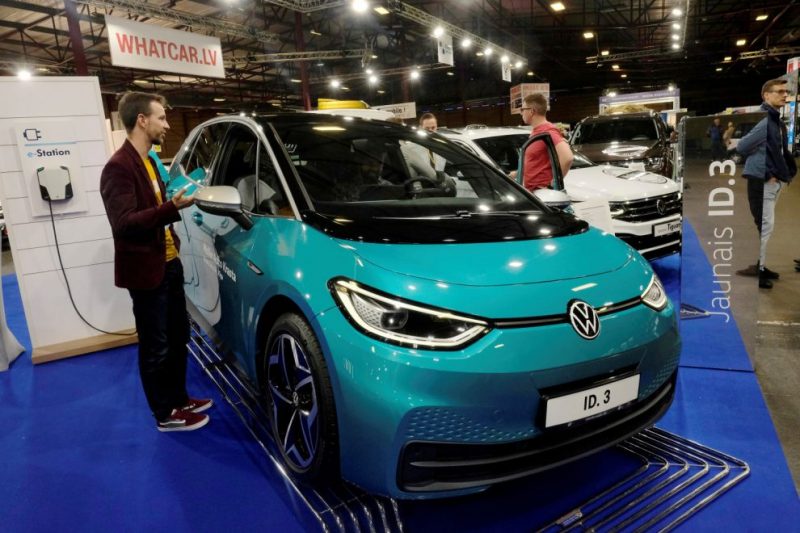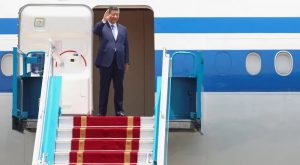(ATF) German automobile giant Volkswagen is aiming for electric vehicles (EVs) to account for 70% of European sales and and 50% of China and US sales of its flagship VW marque by 2030.
The European figure is double its previous target, prompted by stricter legislation. “We are stepping up the pace. In the coming years, we will change Volkswagen as never before,” Ralf Brandstaetter, chief executive, said in a statement.
It added that it was eyeing an operating return on sales of at least 6% from 2023 as it reduced fixed and material costs.
The efforts are part of a strategy which has seen the Volkswagen group invest more than 30 billion euro into e-mobility in order to comply with stricter environmental rules in the EU.
In order to achieve the new goals, VW said it would bring out at least one new battery-powered model each year between now and 2030.
EYEING TESLA
VW’s all-electric ID.3 became the second best-selling car in Europe last December, and the brand has US pioneer Tesla in its sights.
The US carmaker has upped the pressure on major German rivals such as Volkswagen in recent years with its plans to open a manufacturing plant just outside Berlin.
Volkswagen’s EV plans are the most “credible” by a legacy manufacturer, according to analysts. Frank Schwope, analyst at NordLB bank, said VW was “ahead of most of the competition”.
“The VW ID.3 is the start of VW’s unparalleled EV offensive and a key proof-point for the competitiveness of EVs, especially those of legacy automakers vs EV pure-plays,” said Patrick Hummel, head of European automotive research at UBS.
FAST CHARGE
In a separate development, an Israeli company has developed a 5-minute battery charge for EVs.
Ultra-fast recharge specialists StoreDot have developed a first-generation lithium-ion battery that can rival the filling time of a standard car at a petrol pump.
“We are changing the entire experience of the driver, the problem of ‘range anxiety’… that you might get stuck on the highway without energy,” StoreDot founder Doron Myersdorf said.
His company, based in Herzliya, near Tel Aviv, is backed by German manufacturer Daimler, the UK’s British Petroleum and electronics giants Samsung and TDK.
With reporting by Agence France-Presse
























